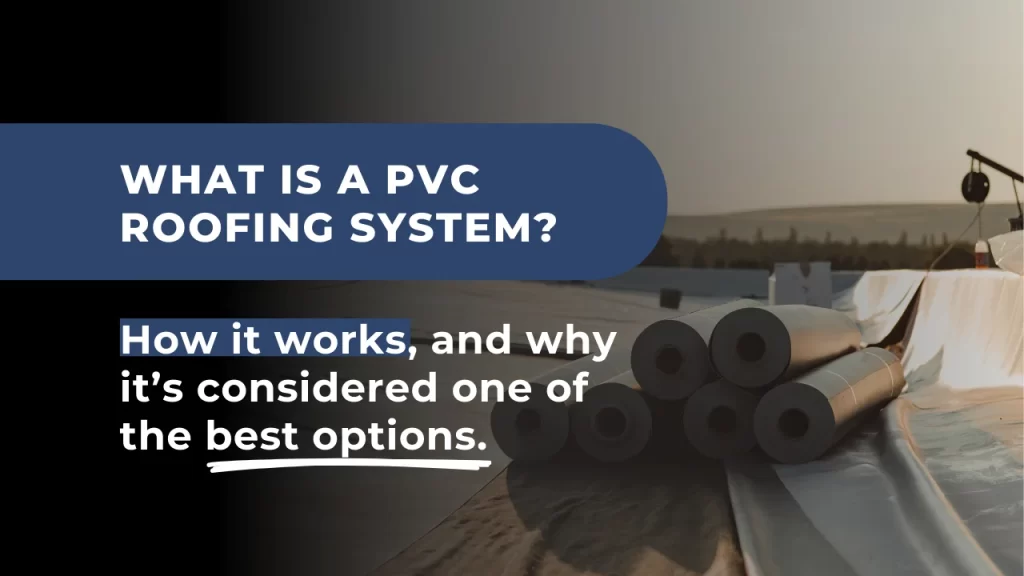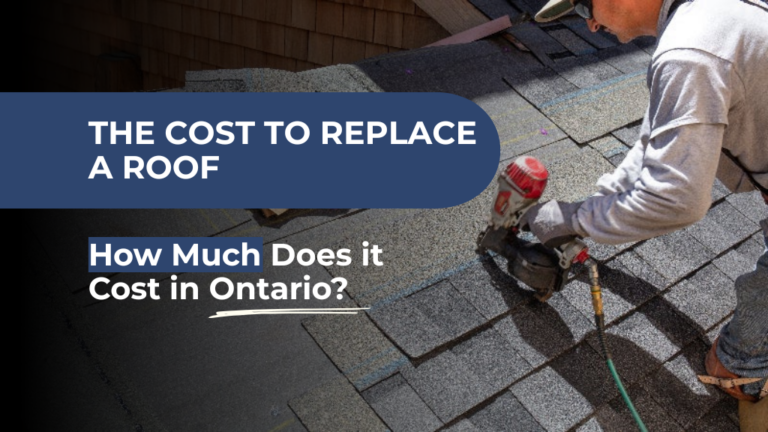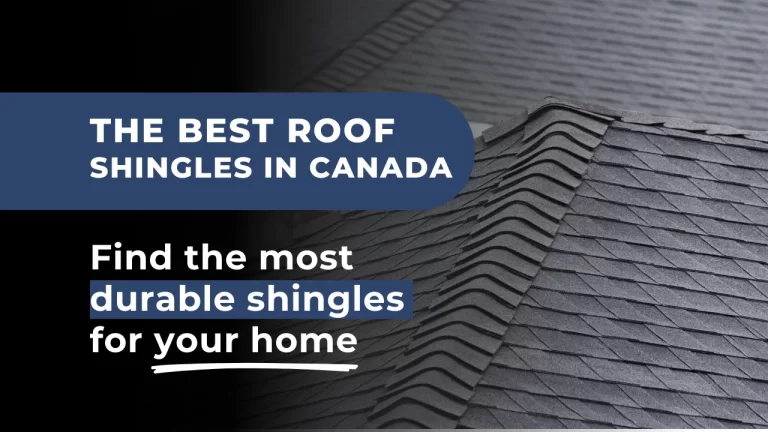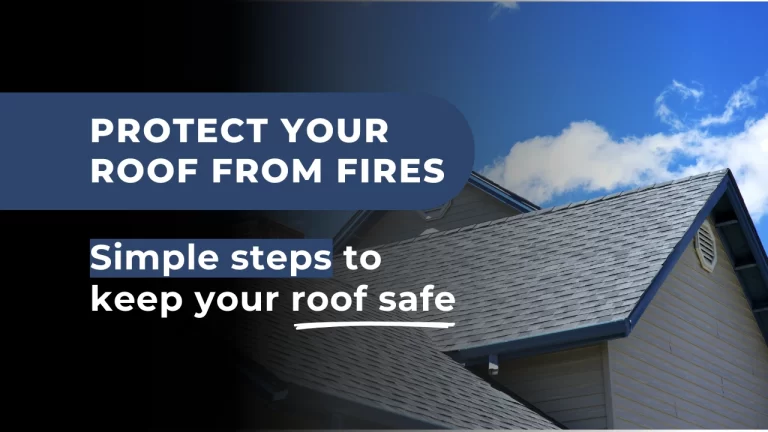When you’re installing a new roof, you have a wide range of shingle and roofing options available, from traditional wood and asphalt shingles to more modern materials like ethylene propylene diene terpolymer (EPDM). Each one has its own benefits and advantages that make it more suitable for certain types of installations than others.
One material that’s been gaining popularity in both the residential and commercial roofing sectors is PVC roofing. Known for its durability, waterproofing, and energy efficiency, PVC is becoming a go-to option for building owners and facility managers who want to invest in a long-lasting solution. But what exactly is a PVC roofing system, and why might it be the right choice for your home or building?
Unlike traditional roofing materials, which can wear down over time due to weather conditions or environmental factors, PVC roofing is designed to withstand a wide range of challenges. In this blog, we’ll walk you through what a PVC roofing system is, how it works, and why it’s considered one of the best options available today.
What Is a PVC Roofing System?
PVC, or polyvinyl chloride, is a type of plastic that’s used in a wide range of construction materials, including pipes, windows, and of course, roofing. When it comes to roofing, PVC is used to create durable, flexible, and waterproof membranes that can be installed on flat or low-sloped roofs.
A PVC roofing system consists of multiple layers. The core layer is the PVC membrane itself, which is typically reinforced with polyester or fiberglass to increase its strength. This membrane is then stuck or mechanically fastened to the roof deck to provide a strong and stable covering. In addition to the membrane, the system includes flashings, insulation, and other materials designed to improve performance and ensure long-lasting protection.
PVC roofing membranes are manufactured in sheets that are typically anywhere from 40 to 80 millimetres thick. (The thicker the membrane, the more durable it is.) These sheets are installed using heat-welding techniques that bond the seams together, creating a waterproof barrier that resists leaks, punctures, and other damage.
Why Choose a PVC Roofing System?
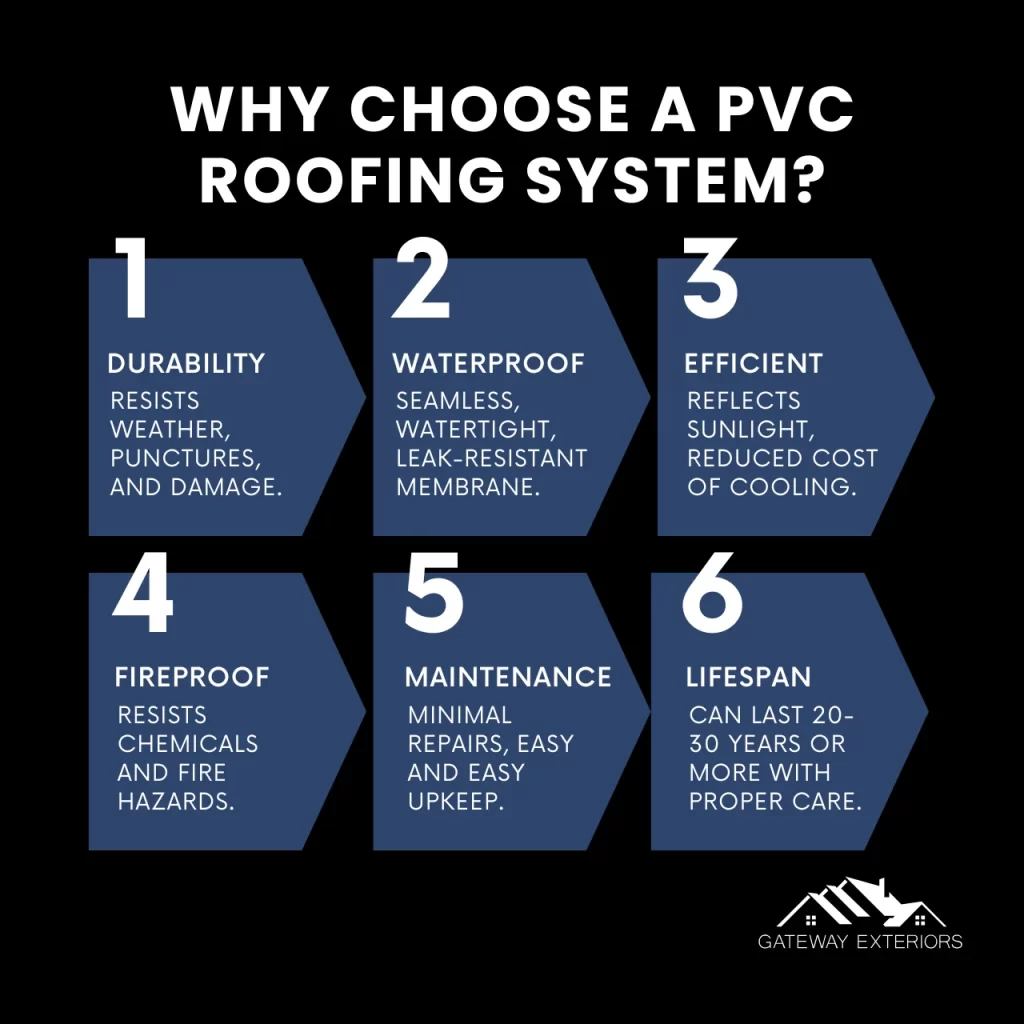
Now that you know what PVC roofing is, you’re probably wondering why so many homeowners and commercial building owners are choosing this option. Here are some of the top reasons why PVC roofing systems are a popular choice.
Durability
One of the biggest advantages of a PVC roofing system is its durability. PVC is designed to withstand harsh weather conditions, including heavy rain, high winds, and extreme temperatures. Unlike other roofing materials that may crack, warp, or degrade over time, PVC maintains its integrity for years. This makes it an excellent choice for commercial buildings where long-term durability is a priority.
PVC roofing systems are also resistant to punctures and tears, which is particularly important if your roof experiences foot traffic from maintenance crews or equipment installations. The reinforced membrane helps to prevent damage from sharp objects, debris, or accidental drops.
Waterproofing and Leak Prevention
The primary function of any roof is to keep water out of your building, and PVC does this exceptionally well. Because PVC membranes are installed using heat-welding, the seams between the sheets are essentially melted together. This creates a strong, seamless bond that’s highly resistant to water infiltration.
Unlike other roofing materials that may rely on adhesives or mechanical fasteners, PVC’s heat-welded seams form a watertight barrier. This reduces the risk of leaks, even in areas where water tends to pool or where drainage is less than ideal.
Energy Efficiency
Another key benefit of a PVC roofing system is its energy efficiency. PVC membranes are typically white or light-colored, which helps reflect sunlight and reduce the amount of heat absorbed by your building. This is especially important for commercial buildings with flat or low-sloped roofs, which are more exposed to direct sunlight.
By reflecting heat, PVC roofing can help keep your building cooler during the summer months, reducing the load on your air conditioning system. This can lead to lower energy bills and a more comfortable working environment for your employees.
Chemical Resistance
If your building houses any industrial or manufacturing processes that involve chemicals, a PVC roofing system could be a great fit. PVC is naturally resistant to a wide range of chemicals, including acids, oils, and fuels. This makes it a good choice for buildings where chemical exposure is a concern.
For example, warehouses, factories, and other industrial facilities often have exhausts or vents that release chemicals onto the roof. With a PVC roofing system, you won’t have to worry about these chemicals damaging the roof membrane.
Fire Resistance
PVC roofing systems are also known for their fire resistance. Many PVC membranes are designed to meet or exceed fire safety standards, meaning they’re less likely to ignite or spread flames in the event of a fire. This can provide added peace of mind, knowing that your building has an extra layer of protection against fire hazards.
Low Maintenance
When it comes to maintaining a roof, PVC systems require relatively little upkeep. The material’s durability and resistance to damage mean that you won’t have to spend a lot of time or money on repairs. Regular inspections and basic cleaning are usually enough to keep your PVC roof in great shape. Of course, it’s always a good idea to schedule annual roof inspections to ensure that everything is in good condition, but compared to other roofing materials, PVC is generally lower maintenance.
Long Lifespan
Another reason why PVC roofing systems are so popular is their long lifespan. With proper installation and maintenance, a PVC roof can last 20 to 30 years or more. This makes it a cost-effective option in the long run, as you won’t have to replace your roof as frequently as you might with other materials.
How Is a PVC Roofing System Installed?
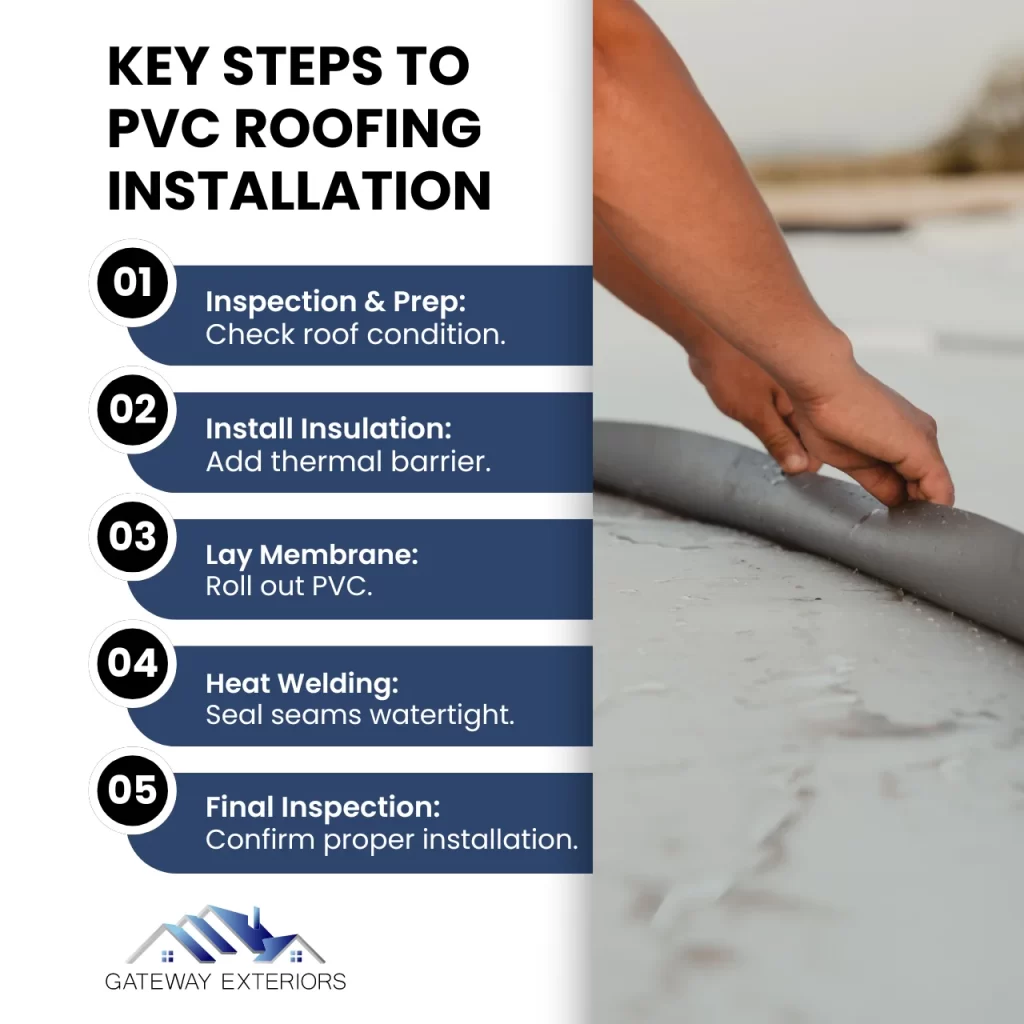
Understanding how a PVC roofing system is installed can give you a better idea of what to expect if you decide to go with this option. The installation process typically involves the following steps:
- Inspection and Preparation: Before the PVC membrane can be installed, your existing roof needs to be inspected for any underlying issues. Any damage, such as rot or structural problems, must be addressed before the new roof can be installed.
- Installing the Insulation: Once the roof deck is prepared, a layer of insulation is applied. This insulation helps improve energy efficiency by reducing heat transfer between your building and the outside environment.
- Laying the PVC Membrane: The PVC membrane is then rolled out over the roof deck. Depending on the system, the membrane may be fully adhered using adhesives or mechanically fastened using screws and plates.
- Heat Welding the Seams: As mentioned earlier, the seams between the PVC sheets are heat-welded together to create a watertight bond. This step is crucial in ensuring that your roof remains leak-free for years to come.
- Final Inspection: Once the installation is complete, a final inspection is conducted to ensure that everything is properly installed and that there are no issues with the seams or flashings.
Is a PVC Roofing System Right for You?
So how do you know if a PVC roofing system is the right choice for your commercial building? While PVC offers many benefits, it’s important to consider factors such as your budget, the climate in your area, and the building itself.
If you’re looking for a durable, long-lasting, and energy-efficient roofing system that’s resistant to chemicals, fire, and water, PVC might be the perfect solution. It’s especially well-suited for buildings with flat or low-sloped roofs and those that are exposed to harsh weather conditions. However, it’s always a good idea to consult with a professional roofing contractor to determine whether PVC is the best option for your building. They can assess your roof’s condition, provide recommendations, and help you choose the roofing system that meets your needs.
Choose Gateway Exteriors for Your PVC Roofing Needs
With PVC roofing, you can enjoy a wide range of benefits, such as durability, energy efficiency, and fire resistance. If you’re located in Hamilton, ON, and need help with your residential or commercial roofing needs, contact Gateway Exteriors today. Our team of experienced professionals can answer your questions and help ensure you get the right roofing system for your building. With years of experience in the industry, Gateway Exteriors is the trusted choice for quality roofing solutions. Don’t wait until you’re dealing with leaks or damage- reach out to us to schedule a consultation and see how a PVC roofing system can benefit your building.


